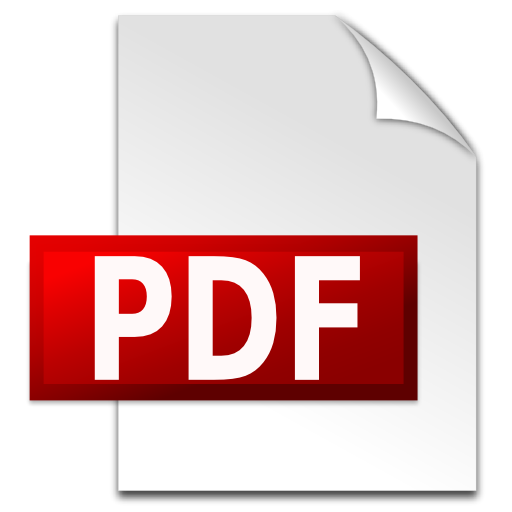Quality Improvement By TQM Tools
EOI: 10.11242/viva-tech.01.06.009
Citation
Mr. Ritwik Tiwari, Mr. Chhaya Patil, Mr. Chandan Pandey, Dr. Arun kumar, "Quality Improvement By TQM Tools", VIVA-IJRI Volume 1, Issue 6, Article 9, pp. 1-6, 2023. Published by Computer Engineering Department, VIVA Institute of Technology, Virar, India.
Abstract
The aim of this report is to give a survey on how can quality of any factory/ enterprise/ company can be change using simple TQM tools. This report helps to reduce the waste and improve the efficiency of the same. the report throws lights on use of TQM tools for the environment of manufacturing, energy conservation, development of product effectively. The report provides information regarding the use of different tools of TQM to from a better reliable and effective. The report also present the TQM technology used over traditional way as it promotes better design and development of innovative manufacturing system which highlights the main agendaof TQM that is improving the quality of system without increase in the cost or with least increase.
Keywords
Total Quality Management (TQM), Small And Medium Enterprise (SME), Critical Success Factor(CSF). Plan-Do-Check-Act (PDCA), Statistical Quality Control (SQC), Total Production Management (TPM),Just In Time(JIT), Economic Resource Planning(ERP).
References
- Alexander, C. Philip., Learning from Japanese, Personnel Journal, 60, 1981, pp 616-619
- Chaudhary, R. and Yadav, L., Impact Of Quality Circle 1970-1990 Employees & Organization A Case Study, IOSR Journal of Engineering (IOSRjEn), 2(10), 2012.
- Fukui, R., Honda, Y., Inoue, H., Kaneko, N., Miyauchi, I., Soriano, S. and Yagi, Y., Handbook For TQM And QCC, A Guide for two facilitators and Circle Leaders. How To Start QCC, 2, 2003, p.6.
- Mitchell Lee Marks, Philip H. Mirvis, Edward J. Hackett and James F. Grady, Jr., Employee Participation in a Quality Circle Program: Impact on Quality of Work Life, Productivity, and Absenteeism, Journal of Applied Psychology, 71(1), (1986), pp 61-69..
- Sharma, C., Quality circle: An evolutionary tool for libraries. International Journal of AdvancedResearch in Management and Social Sciences, 2(5), 2013, pp.154-159.
- Rast, S. and Tourani, A., Evaluation of employees' job satisfaction and role of gender difference: An empirical study at airline industry in Iran, International Journal of Business and Social Science, 3(7), 2012.
- Arumugam, V., Ooi, K., & Fong, T. (2008). TQM practices and quality management performance: An investigation of their relationship using data from ISO 9001: 2000 firms in Malaysia. The TQM Journal, 20(6), 636-650.
- Cardinal, L. B. (2001). Technological Innovation in the Pharmaceutical Industry: The Use of Organizational Control in Managing Research and Development. Organization Science, Volume 12 Issue 1, January-February 2001, 19-36.
- Dale, B. G., Y.-Wu, P., Zairi, M., Williams, A., & Van Der Wiele, T. (2001). Total quality management and theory: An exploratory study of contribution. Total Quality Management & Business Excellence, 12(4), 439-449.
- Dotoli M, Fanti, M.P. Rotunno, G. Ukovich, W (2011). A Lean Manufacturing Procedure using Value Stream Mapping and the Analytic Hierarchy Process. In: Proceedings of the 2011 IEEE Conference onSystems, Man and Cybernetics (IEEESMC 2011). Anchorage, USA, October 9-12, 2011.
- Gupta,A.,Ranjan,S.(2019).Innovation in Entrepreneurship by Applying TRIZ. CASS, 3(1),127-136 Hellsten, U., &Klefsjö, B. (2000). TQM as a management system consisting of values,techniques and tools. The TQM Magazine, 12(4), 238-244.William Gyasi-Mensah, Hu Xuhua “Towards Developing a Green manufacturing Environment: What is Ghana doing?” Environmental Management and Sustainable Development ISSN 2164-7682 2018, Vol.7,No.2.
- Jayaram, J., Ahire, S., & Dreyfus, P. (2010). Contingency relationships of firm size, TQM duration, unionization, and industry context on TQM implementation--A focus on total effects. Journal of Operations Management, 28(4), 345-356.
- Prajogo, D., &Sohal, A. (2003). The relationship between TQM practices, quality performance, and innovation performance: An empirical examination. International Journal of Quality & Reliability Management, 20(8), 901-918
- Siddiqui, F., Haleem, A., &Wadhwa, L. (2009). Role of Supply Chain Management in Context of Total Quality Management in Flexible Systems: A State-of the-Art Literature Review. Global Journal of Flexible Systems Management, 10(3), 1-10.

